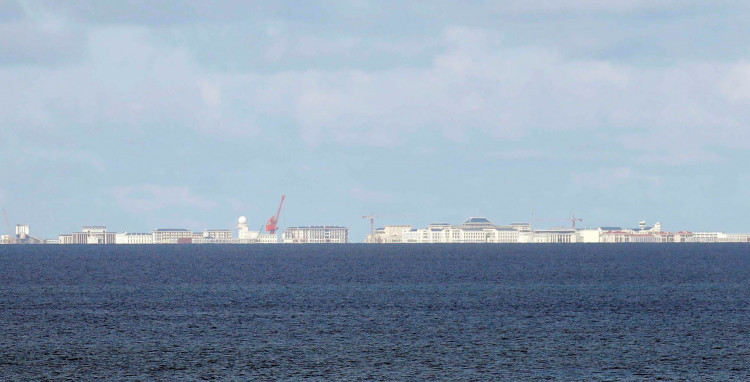President Joe Biden announced on Wednesday that the U.S. will share nuclear-powered submarine technology with Australia as part of a new defense alliance with that country and the U.K.
As they appeared virtually together to make the announcement, Biden, Australian Prime Minister Scott Morrison, and British Prime Minister Boris Johnson discussed shared values and the need to secure peace and security in the region.
"Our nations will update and enhance our shared ability to take on the threats of the 21st century, just as we did in the 20th century - together," Biden said
Morrison called it a "next-generation partnership, built on a strong foundation of proven trust" that will help promote "the cause of peace and freedom."
The agreement is known as AUKUS - an acronym for the three countries' names - does not grant Australia nuclear weapons. However, the technology will allow the country's submarines to move farther and more quietly, enhancing their capabilities in a region where tensions with China are rising.
The U.S. has only shared what a senior administration official described to reporters as "extremely sensitive" submarine propulsion technology once before, with Great Britain more than 60 years ago, in 1958.
Naval confrontations are already routine in the South China Sea, which China claims as part of its territorial waters.
The announcement comes as Biden attempts to refocus U.S. national security and economic policy on China's threat.
Tensions in the South China Sea - a vital maritime lane with oil and natural gas resources - have risen in recent years, with China erecting military bases on many small reclaimed islands.
The trilateral announcement drew an immediate rebuke from China.
China compared the move to the Cold War era and encouraged the group to "shake off" outmoded ways of thinking.
Aside from AUKUS, the president has highlighted regional collaborations such as the Quad, which includes the United States, Australia, India, and Japan. Next week, Biden plans to host a conference with the presidents of those countries at the White House.
Earlier this year, Biden asked Japanese and South Korean presidents to be the first two foreign leaders to visit the White House in person. His first foreign trip, in June, to the Group of Seven and NATO, was equally focused on China's economic and security threats.






